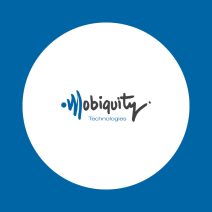
The Art of Staying Compliant w/ Greg Ponesse, Chief Revenue Officer at Compliable
How can operators and suppliers best ensure that they stay on track of ever-changing rules and regulation once they are live in a market?
Fundamentally, it’s about keeping a finger on the pulse of the market and curating a broad network of industry sources to ensure that you are up to date on any new developments. Industry press releases, newsletters and magazines are all excellent places to begin, and getting into the habit of checking regulator websites on a monthly basis is a good next step. In general, regulators maintain open communication with the public concerning new regulations; as it’s rare to have a dedicated contact person from any given agency checking in to ensure that you’ve kept up with any updates, however, it will still fall to you to make sure that you’re keeping current with any changes. Ultimately, it is always the responsibility of the licensee to ensure that it is compliant and, if mistakes are made, there are rarely, if ever, any get-out-of-jail-free cards.
Additionally, building a network of compliance professionals that you can reach out to on short notice can be a huge help, as urgent situations can arise without warning and require you to react quickly. It’s not always possible for every company to field an in-house compliance team that can deal with every request and change, even if that would be very preferable, so having experts just a call away is always a smart choice.
Compared with entering a market, how time consuming is maintaining compliance for teams?
While entering a new market is complex, maintaining compliance is equally important, and introduces its own challenges of minutiae and attention to detail. Renewal windows need to be carefully monitored, new regulations need to be constantly observed, and required updates need to be passed on to regulators in a timely manner.
These challenges are true no matter the size of the company in question. A small company could be licensed in 16 regions, with one person managing the process for all those markets. In such a case, that one person would probably need to spend a decent portion of their work days just to ensure that compliance was being maintained across all those markets, even if the individual number of licenses was low. A large company operating in fewer locations, on the other hand, might have thousands of employees and licenses to maintain for that location, and not one of those employees or licenses could be allowed to fall through the cracks. Each license would need to be tracked, and each renewal dealt with in a timely fashion. In either case, maintenance of compliance should be expected to take up a sizable amount of time.
Are there common mistakes that occur and what impact can this have on operations?
At the risk of sounding reductive, the most common mistakes are not filling out the application correctly or failing to include the correct documentation. Attention to detail matters so much in the process and taking the time to parse what can often be very complex sets of instructions is critical.
No matter the type of licensure, there is always going to be a large amount of information and documentation required, and making sure that you have all of that information and documentation at the ready before you begin is also critical to your success in the process.
Most simply, you could equate the process to that of buying a house. Everything needs to be in order before you place your bid, or it will fall through and someone else will likely swoop in and take the house right out from under you. It’s more or less the same when a company is going through the licensing process. If everything isn’t in order, you might have to wait a long time after submitting your initial application just to be told that something is wrong or missing. Once those issues are corrected, you would have to resubmit the application, starting from the back of the queue again. This would obviously delay the issuing of a license in an industry where first-mover advantage is crucial.
How can tech solutions help teams stay compliant once they are live in a market?
There are many ways in which such solutions can assist with compliance. Our platform, for example, allows you to input all of your information and upload all your documents exactly once, and to then output that information to multiple forms at the same time. It also tracks the application status, which can be very challenging to handle on your own if you are active in numerous regions or have a lot of employees. Furthermore, it reminds you of expiration dates, so you can be well prepared and organized when the time comes for renewals. Finally, because we store your information, you are also not required to re-enter all of your information year after year, making the renewal process much more efficient; you will only have to update information if the regulator has changed their forms, otherwise, everything will slot right in where it belongs.
We put an immense amount of effort into ensuring that our forms and other documents are kept up to date with all regulatory requirements and guidelines. Thus, when you use our service to generate forms for any application or renewal, you can be assured that you are filing the correct forms, and that all the questions on that form have been filled out correctly. In short, using our platform ensures that compliance teams can focus on other important tasks while resting safe in the knowledge that their licensure forms have been completed correctly, and that their licenses and renewals are being effectively tracked.











